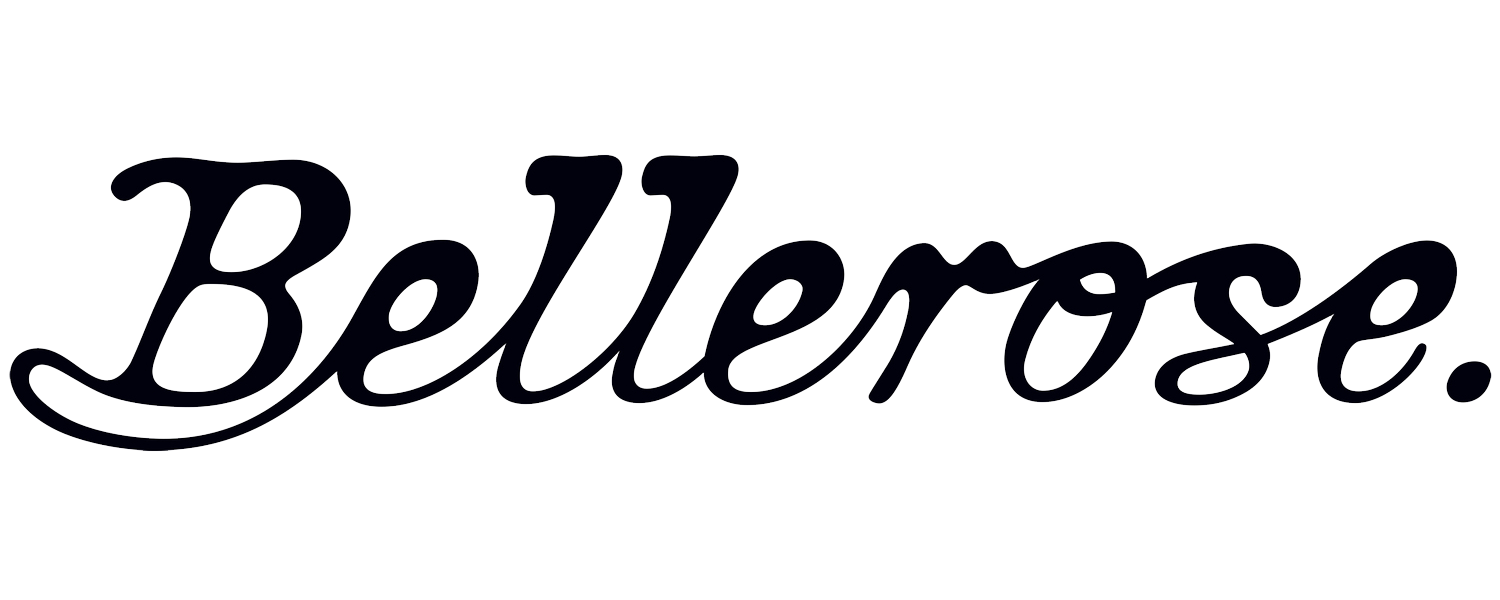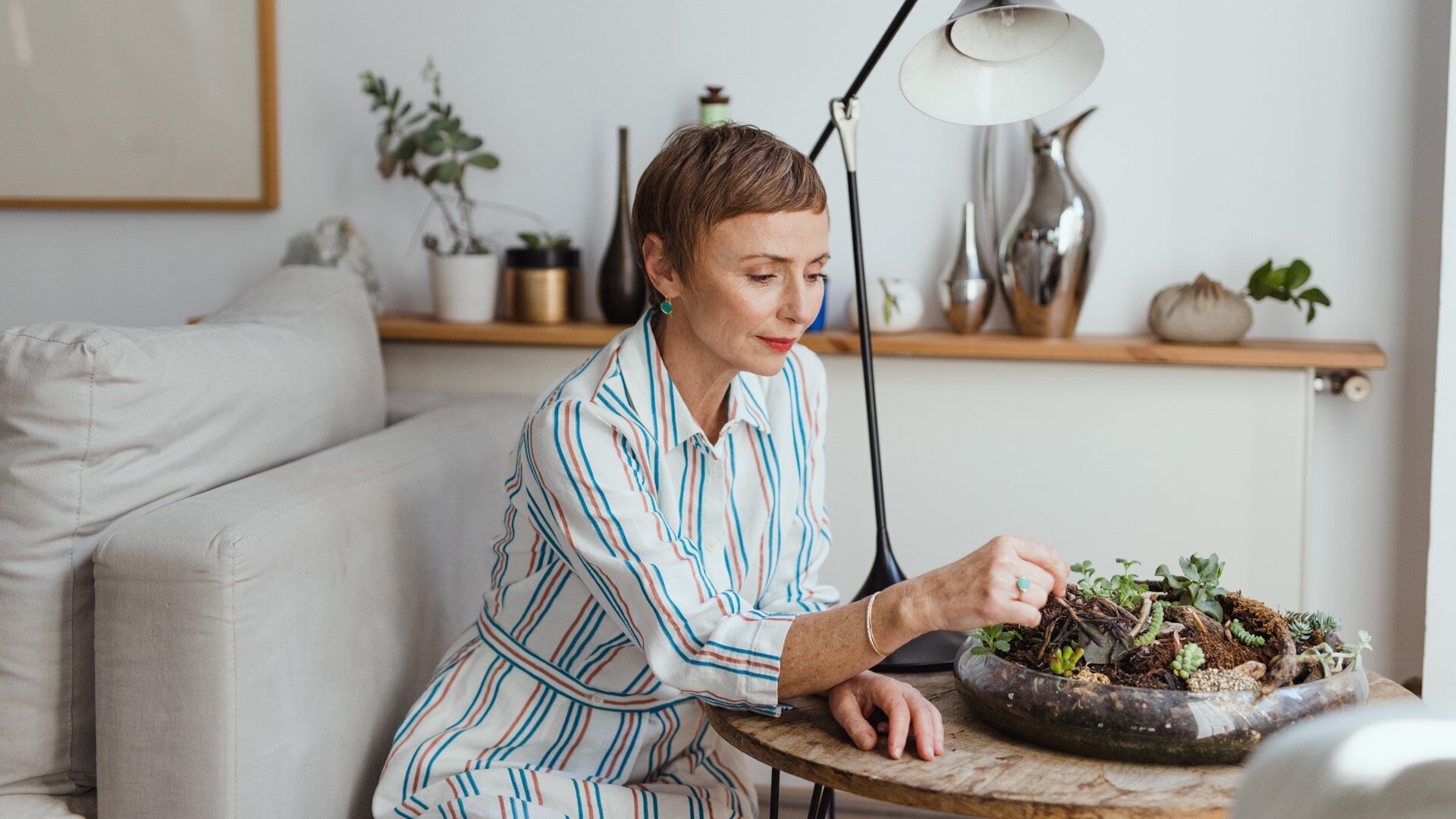“If it’s too perfect, it’s of no interest to me because it lacks character”. Koen Ghesquière’s ceramics are raw and imperfect. Their beauty lies in their flaws, their unexpected colors, their slightly crooked shapes. Not one is like the other. Character defines everything about Koen. The way he lives. The way he thinks. The cups and plates he creates. We met up with him in his Antwerp townhouse and atelier, he offered us coffee and we started talking.
Shop Noth Overshirt - Dosavy Knitwear
Fish shops, old ladies and ceramics.
I grew up in Ostend and lived there until I was in my early twenties. I was a musician, played in bands and a had a bar there. But back then, there was nothing in Ostend. Only fish shops and old ladies. My girlfriend at the time was a ceramist, she made sculptures. We knew we had to get out of there, so we did and left for Antwerp. We had nothing. Didn’t even have a plan. We got by doing odd jobs in the world of theater and opera or by waiting tables. I’ve done many different things because I’m always on the lookout for new impulses. I switch careers every 5 or 6 years in order to stay focused and sharp. Now though I feel like the pottery, this brand I’ve created, is something that’ll stay. I may downsize it, but it’ll stay.
I didn’t always live in Antwerp though. For over 15 years, I had a farm in the South of France, which I lost after my divorce. The good thing is that I just bought a new one, right on the border of the Champagne region. If this interview would’ve been in 6 months from now, we could’ve met there. It still has to be renovated, which is something I do myself. Same as I did here when I moved in 6 years ago. The idea is to build a ceramic oven there too, in order to have two ateliers. One here and one there. The results will be very different though, because it’ll be a fire oven. The ones I have here work on electricity. Ceramics that have been in actual fire and actual flames look and feel different. It goes right back to the roots of this craft. I need to feel those flames again.
Shop Vil Polo
No expectations. No stress.
Why things have picked up so fast for Ghesq? There must’ve been a certain void because customers from the world of hospitality keep coming to me. Maybe no one else wants their business? I don’t know. I got my start through Paul Morel, who’s the cocktail master at the Jane. Then it was places like Cafématic, Ga Nord and it’s been non-stop ever since.
Contact with customers will always be challenging for me. What I enjoy most is doing stock sales here because the people that come to those don’t ask any questions, they just love what I do. On the contrary, when a customer asks for 20 of the same cups, I get stressed immediately. Because that’s something I cannot deliver. A while ago I made over 200 plates, specifically for one customer that had a very specific plate in mind. It had to be in an exact type of clay, in this exact shape, with this exact glaze and this exact grey color. Did a test plate and it came out fine. But then when I baked the rest of the lot, they all turned out pink. So, I tried to salvage them and gave it another go but they came out in even fiercer pink. In the end I told the customer I couldn’t work for them anymore. It’s no one’s fault but I don’t need the stress and, in the end, they might need a different supplier. But it ended well because I put the whole lot here and two weeks later they were all sold.
So, what I do now is avoiding that kind of stress. I tell customers up front that the end result may differ from what they asked for. Let me do my thing and it’ll be fine. Gradually, as I build a clientele that is at peace with the way I work, it gets easier. They understand what I’m going for and they understand that accidents can happen.
Turning weaknesses into strengths.
One of my advantages is that I can work fast, even though I work on my own. Because my style is rougher, my plates don’t need as much finetuning or finishing. It is what it is. When I get a call on Monday and the customer needs 80 plates by Friday, which has happened, I can deliver. I’m not at all perfect at what I do, and I don’t want to be. I learn as I go, and the journey is as exciting as the destination. There’s an endless number of possible outcomes, the slightest alterations in the process will result in something entirely different.
There’s a Syrian refugee that comes to volunteer here every few weeks, because he misses his old job. It’s funny because we have a very different concept of what’s good and what isn’t. He’s a very skilled potter and a hard worker but doesn’t really understand my way of doing things. He does understand quality. So, he now does the basic work on my pots and I finish them. It’s like he peels the potatoes and I make the fries. Those differences in culture are fascinating. Around the corner from my house there’s a small D.I.Y. store that sells tools and what not. The owner’s Turkish but he was born here, so his Dutch is impeccable. I go there often, and we usually end up talking. The strange thing is that when other customers come in, he switches to a broken, child-like Dutch. I noticed and asked him why. “My customers wouldn’t understand me otherwise” he answered.
Shop Dosavy Knitwear
The potter’s wheel.
One of the things I love about ceramics is its history. The process of trial and error, which really characterizes what I do. Before watches, before thermometers. How warm does the oven need to be? How much wood do we need to burn to achieve that type of heat? The more you immerse yourself in something and the more you learn, the more you appreciate genuine quality. Which is exactly what you experience with clothing as well, right? Where does a fabric come from? Where is it made? I do feel like that in our society we’ve lost touch with the origins of what we use, wear and eat. It’s something you don’t learn in school.
People ask me all the time if I can help to get them started or teach them how to make ceramics, which is funny because I’m not a teacher, nor an expert. I taught myself by trying and failing, by reading books and watching YouTube videos. That’s all the advice I can give them. I can tell you how to ride a bike too, but that’s not how these things work. Go out and do it. It’s a matter of desire and discipline. When I started, I knew nothing at all. I hardly knew what clay was. But every day, I’d sit down and would make 100 clay balls. Then I’d throw them on the potter’s wheel, and I’d keep on trying. I took me close to a year to finally get the hang of it.
Musical chairs.
Like everything, if you’ve got some talent in you, it’ll come out when you try. I play guitar and piano and I’ve always written songs and made music. It’s a definite part of who I am. I’ve got 4 children and they’re all musicians too so that says something. Along the way I stopped playing in bands and that has always bugged me. It feels like something unfulfilled, like unfinished business. That might be my next thing, I just have to find a way to make it work.
Shop Neels Shirt
Pictures : Thibault de Schepper
Words : Bjorn Dossche






















